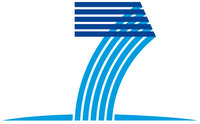Call Details
| Work Programme : | Environment - Climate action, environment, resource efficiency and raw materials |
|---|---|
| Call Identifier : | H2020-SC5-2015-one-stage |
| Call Type : | Targeted call |
| Call Description : | GROWING A LOW CARBON, RESOURCE EFFICIENT ECONOMY WITH A SUSTAINABLE SUPPLY OF RAW MATERIALS |
| Publication Date : | 10 December 2014 |
| Deadline : | 21 April 2015 |
| URL : | http://ec.europa.eu/research/participants/portal/desktop/en/opportunities/h2020/calls/h2020-sc5-2015-one-stage.html |
Topics
| Title : | Integrating North African, Middle East and Balkan Earth Observation capacities in GEOSS SC5-18b-2015 |
|---|---|
| Description : |
The specific challenge is to strengthen the Earth Observation networks (space-based, airborne, and particularly in-situ) of the broad European and North African, Middle East, and Balkan region to reinforce its contribution to the knowledge base for climate, natural resources, and raw materials. Proposals should focus on Earth Observation related research activities with the aim of continuously providing timely and accurate information, forecasts and projections. In line with the EU’s strategy for international cooperation in research and innovation proposals should contribute to implementing the Global Earth Observation System of Systems (GEOSS) and Copernicus. |
| Targeted countries : |
Bahrain, Kuwait, Qatar, Saudi Arabia, United Arab Emirates INCO ASIA : Iran (Islamic Republic of), Iraq, Oman, Yemen INCO MEDITERRANEAN : Algeria, Egypt, Jordan, Lebanon, Libya, Morocco, Palestinian administered areas, Syrian Arab Republic, Tunisia INCO WESTERN BALKAN : Kosovo (UN resolution) |
| Title : | Topic: Strategic international dialogues and cooperation with raw materials producing countries and industry SC5-13f-2015 |
|---|---|
| Description : |
The appropriate and sustainable supply of raw materials requires framework conditions which relate to mineral policies, permitting procedure and data reporting system, raw materials knowledge infrastructure, research and innovation coordination, and international cooperation. Mineral policies are sometimes not clear, too dispersed in their implementation or insufficiently linked to other related policies (e.g. land-use planning) to be fully effective. A common understanding of which mineral deposits are of public importance is lacking. Permitting procedures can be lengthy and sometimes conflict with other public authorities’ requirements. Knowledge of raw materials reserves and resources is dispersed, terminology is often heterogeneous and reporting standards vary throughout the Member States. There is no raw materials knowledge infrastructure at EU level. Research and development in the area of raw materials is scattered between different players. Further coordination is required between industrial players, researchers in the EU and across the whole value chain and EU and Member State funding authorities. There is a need to better exploit synergies in R&D with the best world players in raw materials technology and scientific developments, as well as to learn from the experience of raw materials-producing countries. |
| Targeted countries : |
Australia, Canada, Russia, United States of America INCO ACP AFRICAN : Angola, Benin, Botswana, Burkina Faso, Burundi, Cameroon, Cape Verde, Chad, Comoros, Congo (Democratic Republic of), Congo (Republic), Djibouti, Equatorial Guinea, Eritrea, Ethiopia, Gabon, Gambia, Ghana, Guinea, Ivory Coast, Kenya, Lesotho, Liberia, Malawi, Mali, Mauritania, Mauritius, Mozambique, Namibia, Niger, Nigeria, Rwanda, Sao Tome and Principe, Senegal, Seychelles, Sierra Leone, Somalia, South Africa, Sudan, Swaziland, Zambia, Zimbabwe, Tanzania (United Republic of), Togo, Uganda INCO EECA : Armenia, Azerbaijan, Georgia, Kazakstan, Moldova (Republic of), Ukraine INCO LATIN AMERICA : Argentina, Bolivia, Chile, Colombia, Costa Rica, Ecuador, El Salvador, Guatemala, Honduras, Nicaragua, Panama, Paraguay, Peru, Uruguay, Venezuela INCO MEDITERRANEAN : Algeria, Jordan, Lebanon, Libya, Morocco, Palestinian administered areas, Syrian Arab Republic, Tunisia |
 information about specific international cooperation calls in the Horizon 2020 work
programmes
information about specific international cooperation calls in the Horizon 2020 work
programmes